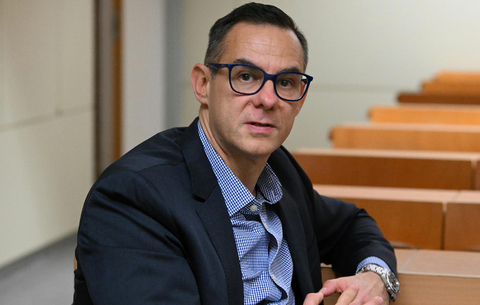Is there a crisis?
Hungary is not yet in economic crisis, but it is in trouble, according to László Antal, one of Hungary's leading macroeconomists. The 63-year-old economist has no confidence in either the Finance Ministry's or the Hungarian National Bank's analyses.
HVG : It's becoming an increasingly common practice for the state not to pay, withholding wages, subsidies, tax rebates, education bursaries. Is the state bankrupt? What does a state bankruptcy look like?
LA: I can't give you a precise definition, but we did see bankruptcy in 1946, at the time of hyperinflation, when 90 per cent of money printed was destined to support state expenditure. Bankruptcy happens when the state can't satisfy obligations such as bond repayments or pension payments. The Argentinean crisis of 2002 wasn't bankruptcy either. Because of currency devaluation, the value of savings, property and factories plummeted to a third of its original level. But the state was still solvent, so this was merely a crisis. In 1994, we were only on the cusp of a c when the government was forced to cut back on various social support mechanisms. The government is making changes to unemployment benefit now, but this is not taking place in response to an immediate need. There is no mass unemployment and no economic decline. There is no crisis in Hungary, not even an indirect danger.
HVG : So what do we have?
LA: Problems. Decline. It's been this way for some time. If we continue in this direction, we will end up in a crisis. You can't say when - at some point the thread will break. I've made the mistake of the prophet Jonah on a few occasions, saying: "Another forty days, and Nineveh will be destroyed," and then nothing happened. But let me say something concrete: in the past, a 5 per cent balance of payments deficit was regarded as acceptable. Now it's at 8 per cent. This would not have been accepted by the international capital markets 20 years ago, now they do accept it. But in the long run, 8 per cent is unsustainable. It has to fall within the next two to three years, to something like 5 per cent. It's rare to successfully forecast the moment of a crisis, despite all the theoretical work that's been done. There are indicators: when the central bank's currency reserves don't cover three months' worth of imports, for example, or when state debt grows rapidly. But postponing spending is not a sign of illiquidity, it's just playing games in an attempt to improve the situation.
HVG : Fitch Ratings has recently downgraded Hungary's long-term credit rating from A to BBB+. How much is pricier credit going to cost us?
LA: I downgraded Hungary's debt ages ago. I don't know how interest rates will develop, but they will certainly rise, along with long-term yields from government bonds. I'm almost sure that the the State Debt Processing Centre will borrow in foreign currencies more slowly and turn towards the domestic market.
HVG : When will things improve in Hungary? If it sticks to the Maastricht criteria and adopts the euro within five years, but also if it loosens up and plays with the forint for a while?
LA: The Maastricht system makes sense, but it's too strict. We have to hurry into the euro, but only in such a way that it doesn't cause a dramatic economic slowdown. Nobody knows where that point lies. Trend growth is at around 3 to 3.5 per cent, no more. This mustn't fall to 1 to 1.5 per cent, because the country would no longer be able to accumulate wealth.
HVG : Will we have the euro in 2010, as the government insists? Or do you consider Fitch's prediction of 2014 more realistic?
LA: Even if the EU is very strict, we can still have the euro in 2012. If the EU is content to accept slightly massaged figures, by allowing the motorways to be financed via public-private partnerships, for example, and we are careful with our money, then we can manage 2010 without it causing severe strains.
HVG : But the EU has already said that it's not happy with public-private motorway construction.
LA: What we had until now was not a real public-private partnership. The state built them, then declared the construction a public-private partnership retrospectively.









